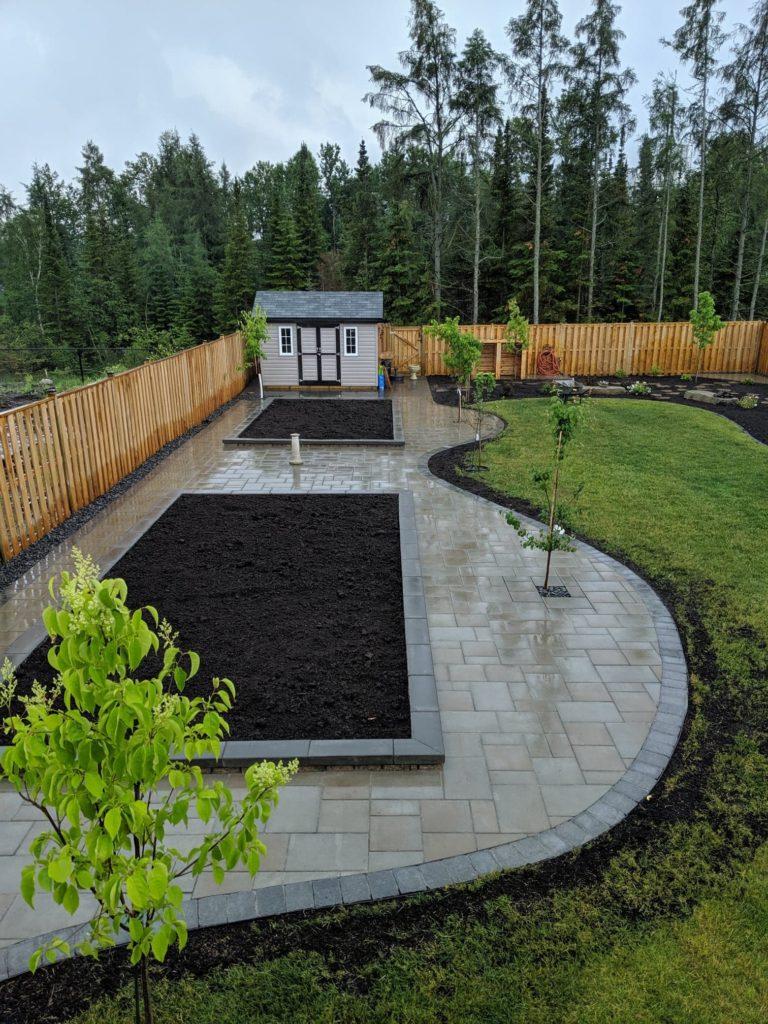Our Blogs

Can Landscaping Improve Energy Efficiency For My Home Or Business?
Yes, landscaping can improve energy efficiency for your home or business by providing shade, reducing heat absorption, and acting as natural insulation, ultimately decreasing energy consumption for cooling and heating purposes. Landscaping isn't just about enhancing the aesthetic appeal of your property; it can also play a crucial role in improving energy efficiency. From strategic planting to thoughtful design choices, landscaping can significantly impact your energy consumption and costs.
At MD Landscape & Design, we specialize in creating landscapes that not only beautify your surroundings but also contribute to a more energy-efficient environment.
Key Takeaways
Strategic placement of trees and shrubs can provide shade during the summer, reducing the need for air conditioning.
Well-designed landscaping can act as a windbreak, reducing heat loss during the winter months.
Incorporating hardscaping elements like pergolas and trellises can provide additional shade and insulation.
Choosing native plants can reduce water consumption and maintenance requirements.
Regular maintenance is essential to ensure optimal energy efficiency benefits from your landscaping.
How to Design a Landscape for Energy Efficiency
Creating a landscape that maximizes energy efficiency is a strategic endeavor that requires careful planning and consideration. By incorporating specific elements into your landscape design, you can significantly reduce energy consumption and create a more comfortable outdoor environment.
Strategic Planting
Begin by strategically positioning trees, shrubs, and other vegetation to provide shade during the summer months. Deciduous trees, in particular, can help block the sun's rays, reducing the need for air conditioning.
Hardscaping Elements
Integrate hardscaping elements such as pergolas, trellises, and shade structures into your landscape design. These features not only add aesthetic appeal but also provide additional shade and insulation, further enhancing energy efficiency.
Windbreaks
Consider incorporating windbreaks into your landscape design to reduce heat loss during the winter months. Evergreen trees and shrubs planted strategically can help block cold winds and create a more sheltered outdoor space.
Water Features
Incorporating water features such as ponds or fountains can help moderate temperatures in your landscape, reducing the need for heating or cooling.
Maintenance Practices
Regular maintenance is essential to ensure the ongoing energy efficiency of your landscape. This includes proper pruning, mulching, and irrigation to promote healthy plant growth and maximize energy-saving benefits.
The Role of Native Plants in Energy-Efficient Landscaping
Native plants are well-suited to thrive in local climate conditions, making them ideal choices for energy-efficient landscaping. By incorporating native plants into your landscape design, you can reap numerous benefits while reducing environmental impact.
Water Conservation
Native plants are adapted to local rainfall patterns and soil types, requiring less water than non-native species. This can significantly reduce water consumption and lower maintenance requirements in your landscape.
Ecosystem Support
Native plants provide essential habitat and food sources for local wildlife, enhancing biodiversity and ecological resilience in your landscape.
Drought Resistance
Many native plants have evolved to withstand periods of drought, making them resilient choices for sustainable landscaping in regions prone to water scarcity.
Low Maintenance
Once established, native plants typically require less maintenance than non-native species, including less fertilizer and pesticide use.
Soil Health
Native plants contribute to soil health by promoting natural processes such as nutrient cycling and soil erosion control.
Incorporating Smart Irrigation Systems in Your Landscape Design
Integrating smart irrigation systems into your landscape design can revolutionize the way you water your plants, promoting efficiency and sustainability.
Precision Watering
Smart irrigation systems use advanced technology, such as soil moisture sensors and weather data, to deliver the right amount of water to your plants precisely when they need it. This reduces water waste and promotes healthier plant growth.
Water Conservation
By only watering when necessary and adjusting watering schedules based on environmental conditions, smart irrigation systems can significantly reduce water consumption compared to traditional irrigation methods.
Remote Access
Many smart irrigation systems allow you to control and monitor your watering schedule remotely via a smartphone app or computer. This flexibility ensures your landscape receives adequate water even when you're away from home.
Customization
Smart irrigation systems can be tailored to the specific needs of your landscape, including different watering zones for plants with varying water requirements. This customization ensures optimal water distribution and promotes overall landscape health.
Cost Savings
While the initial investment in a smart irrigation system may be higher than traditional irrigation systems, the long-term cost savings from reduced water usage and lower utility bills can quickly offset the initial expense.
Sustainable Landscaping Practices for Homeowners and Businesses
Implementing sustainable landscaping practices is not only environmentally responsible but also cost-effective and aesthetically pleasing. Here are some practical tips for homeowners and businesses looking to minimize their environmental impact and conserve resources through landscaping:
Xeriscaping
Xeriscaping involves designing landscapes that require minimal water, typically using drought-tolerant plants and efficient irrigation systems. This approach reduces water consumption and promotes water conservation in regions prone to drought.
Composting
Composting organic waste from your landscape and kitchen can produce nutrient-rich compost that improves soil health and fertility. Composting also reduces waste sent to landfills and eliminates the need for chemical fertilizers.
Rainwater Harvesting
Installing rain barrels or cisterns to collect rainwater from your roof can provide a free and sustainable water source for irrigating your landscape. Rainwater harvesting reduces reliance on municipal water supplies and helps alleviate stormwater runoff.
Permeable Paving
Using permeable paving materials for driveways, walkways, and patios allows rainwater to infiltrate the soil, reducing runoff and replenishing groundwater supplies. Permeable paving also helps prevent erosion and reduces the risk of flooding.
Native Plant Landscaping
As discussed earlier, incorporating native plants into your landscape design promotes biodiversity, conserves water, and supports local ecosystems. Native plants are well-adapted to local climate conditions, requiring less maintenance and resources than non-native species.
By adopting these sustainable landscaping practices, homeowners and businesses can create beautiful and eco-friendly outdoor spaces that benefit both the environment and the bottom line.
FAQs
Can landscaping really help reduce energy costs?
Yes, strategic landscaping can provide shade, wind protection, and insulation, reducing the need for heating and cooling and lowering energy bills.
What are some examples of energy-efficient landscaping features?
Examples include deciduous trees for summer shade, evergreen trees for winter windbreaks, and hardscaping elements like pergolas and trellises.
How do native plants contribute to energy efficiency?
Native plants require less water and maintenance, reducing resource consumption and promoting a more sustainable landscape.
Is professional landscaping worth the investment for energy efficiency?
Professional landscaping expertise can help maximize energy efficiency benefits by designing and implementing tailored solutions for your property.
What maintenance is required for energy-efficient landscaping?
Regular maintenance, including pruning, watering, and mulching, is essential to ensure optimal performance and longevity of energy-efficient landscaping features.
Enhancing Energy Efficiency with MD Landscape & Design
Transforming your outdoor space into a sustainable and energy-efficient environment is not only beneficial for your wallet but also for the environment. With MD Landscape & Design's expertise in landscaping and commitment to excellence, you can achieve a beautiful and energy-efficient landscape that enhances the comfort and value of your property.
Transform Your Landscape with MD Landscape & Design: Contact Us for a Greener, More Energy-Efficient Future!
Ready to enhance the energy efficiency of your home or business with professional landscaping services? Contact MD Landscape & Design today for a free quote and personalized consultation. Let us help you create a landscape that not only looks stunning but also saves you money on energy costs. Contact us now to get started!
Connect with us!

1155 Waterford St, Thunder Bay, ON, CA
info@mdlandscape.ca
Hours:
Monday-Friday from 09:00 AM-5:00 PM
Saturday -Sunday: Closed
COMPANY
INQUIRIES
LANDSCAPING AWARDS



